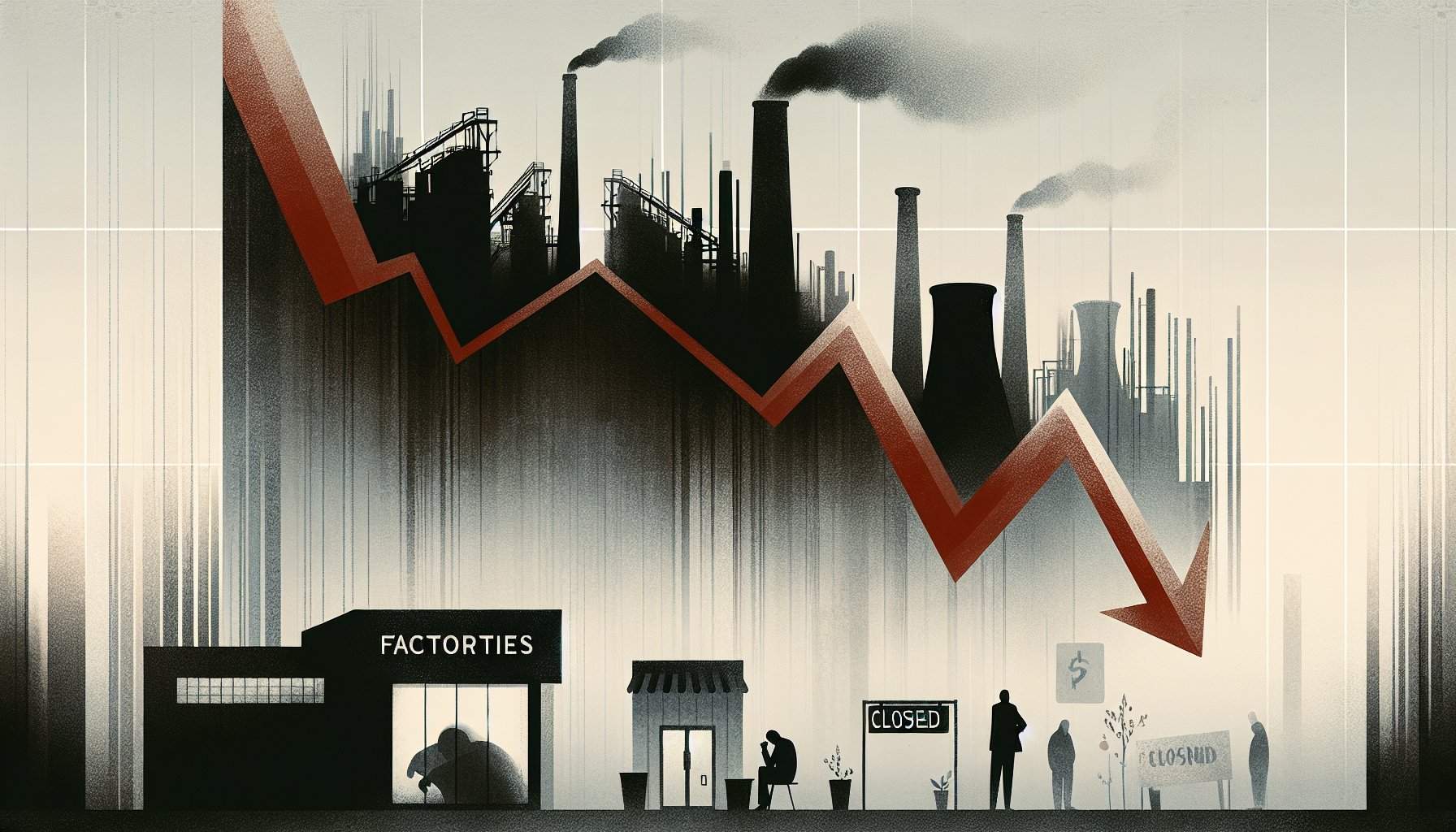How can you invest wisely during a recession?
This article outlines proven strategies for investing during a recession to help you preserve and grow your wealth when the economy is in a downturn. You’ll discover the benefits of defensive stocks, dividend-paying stocks, and recession-proof investments that can safeguard your portfolio.
Read on to learn how to make smart investment choices in uncertain times.
Be sure to calculate your retirement score today with the Institute of Financial Wellness (IFW) to make sure you’re on your way to accomplishing your financial goals!
Key Takeaways
- Understanding economic downturns allows investors to identify opportunities in undervalued assets and maintain a proactive investment approach.
- Defensive stocks, including utilities, consumer staples, and healthcare, provide stability during recessions due to consistent demand for their services.
- Implementing strategies like dollar-cost averaging and maintaining cash reserves can mitigate risks and preserve capital during economic uncertainty.
For valuable insights and expert tips on retirement, be sure to join the IFW Retirement Score Live Webinar.
Understanding Economic Downturns

Imagine navigating through a recession with confidence, knowing how to protect your investments and even seize new opportunities.
Economic downturns are a natural part of the business cycle, which comprises four phases: peak, economic recession, trough, and recovery [1].
A recession is generally defined as two consecutive quarters of negative GDP growth. When the economy weakens, stock prices typically fall as profits shrink and economic growth turns negative.
This phase is marked by a significant decline in economic activity, leading to lower consumer spending, higher unemployment rates, and reduced industrial production. Economic research plays a crucial role in understanding these dynamics.
During a recession, investment markets experience increased volatility, and stocks tend to perform poorly, resulting in negative returns.
Long-term investors, however, can see potential opportunities to buy stocks at lower prices. Identifying undervalued assets before a recession can help avoid panic selling and maintain a proactive investment approach. Keeping emotions in check is vital during these periods of economic uncertainty.
Historically, those who position themselves ahead of a market downturn can effectively weather the storm and even come out ahead. It’s not just about surviving but thriving in down markets by having a clear investment strategy and sticking to it.
Understanding recession-proof investments will help you position your portfolio effectively for the next economic downturn, ensuring preparedness for future economic cycles.
Defensive Stocks for Stability

In times of economic headwinds, defensive stocks offer a beacon of stability.
These stocks, also known as non-cyclical stocks, maintain stable performance regardless of the broader economic conditions. Typically found in the following sectors like:
- Healthcare
- Utilities
- Consumer staples
- Defensive stocks
Healthcare, utilities, and consumer staples are prime examples of sectors that remain resilient during economic downturns.
Defensive stocks in these sectors tend to have strong balance sheets and provide essential services that people continue to need no matter the state of the economy. This makes them an excellent choice for long-term investors seeking to mitigate risk during recessions.
Examining these sectors reveals why they are considered wise investments during a recession. The essential services from utility companies, indispensable products from consumer staples, and the constant need for healthcare make these sectors a stable haven for investments.
Utilities:
Utility stocks are considered stable investments during economic downturns due to their consistent demand for essential services like electricity and water.
Companies such as NextEra Energy and Southern Company have demonstrated significant growth and stable dividends, making them solid choices for investors during recessions.
The stable cash flows generated by utility companies make them appealing for income-focused investors, particularly in retirement.
Consumer Staples:
Consumer stocks remain resilient as they provide necessary products regardless of economic conditions.
These companies provide products that people need regardless of the economy, ensuring consistent sales. This consistent demand makes consumer staples stocks a reliable choice for maintaining portfolio stability during market downturns.
Health Care Sector:
The health care sector is supported by ongoing demand for medical services, making it resilient during recessions.
Even during economic downturns, consumers continue to purchase essential products like prescription drugs, reinforcing the stability of the health care sector.
This ongoing demand makes health care stocks a strong component of a defensive investment strategy.
Dividend-Paying Stocks

Picture this: a steady stream of income flowing into your investment account, even when the stock market is in turmoil. Dividend-paying stocks offer just that—a dependable source of cash that can act as a lifeline during economic downturns.
These stocks tend to provide a cushion for your portfolio during recessions, as companies with strong balance sheets and consistent dividend payments can offset declines in stock prices.
Even if a company’s stock price falls, it may continue paying dividends, providing income and reducing the impact of volatility on investments.
High-quality dividend stocks are typically less volatile and provide income through cash dividends. When selecting dividend-paying stocks, investors should prioritize consistency in paying or increasing dividends. Companies with strong balance sheets are less vulnerable to credit tightening and can manage debt more easily, making them more resilient during economic downturns.
Low Debt Loads:
Companies with low debt levels are generally more resilient during economic downturns.
Low debt loads allow these companies to maintain operations and invest in growth when others may struggle.
Consistent Dividend Growth:
Consistent dividend growth is crucial during economic downturns as it signifies a company’s stable financial health and commitment to returning value to shareholders.
Investors should prioritize companies with a long track record of increasing their dividends, such as Dividend Aristocrats, which have increased dividend payouts for at least 25 consecutive years.
Bonds and Fixed Income Investments

Bonds are generally safer than stocks during economic downturns, making them a favored choice among cautious investors.
Investment-grade bonds, in particular, are considered defensive during recessions due to their lower risk of default. Government bonds, such as Treasury bonds, offer fixed interest rates and long maturities, enhancing their stability. During economic downturns, bond prices often increase as investors look for safe havens amidst falling stock prices.
Fixed income investments, like dividend-yielding bonds, provide reliable income which can stabilize a portfolio during economic uncertainty. Bonds often perform well in recessions, making them a critical component for those seeking to protect their capital.
Purchasing bonds before expected interest rate cuts can be a strategic move to capitalize on rising bond prices.
Government Bonds:
Treasury bonds are viewed as safe investments due to being backed by the U.S. government. The demand for Treasury bonds generally increases during economic uncertainty, driving up their prices.
Government bonds are generally seen as safe investments because they are issued by entities that are unlikely to default.
Investment Grade Bonds:
Investment-grade bonds are considered safer than high-yield bonds, especially during recessions. These bonds provide consistent interest payments, making them attractive during economic downturns.
Including investment-grade bonds in your portfolio can help maintain stability and generate reliable income during tough economic times.
Real Estate Opportunities

Real estate offers unique opportunities during recessions, particularly when home values drop, allowing for rental income and potential profit when values rise.
Lower mortgage rates allow investors to lock in attractive payments for decades. A reliable tenant provides a steady stream of income, making real estate a viable investment during economic downturns. However, not all real estate asset classes are the same; more affordable types of housing may be more stable investments.
Investors can sell at a profit when real estate values rise after a recession. Exploring affordable housing and Real Estate Investment Trusts (REITs) highlights their potential as promising real estate opportunities during economic downturns.
Affordable Housing:
Investing in affordable housing tends to be more stable during recessions due to consistent demand from tenants.
The affordable housing market remains stable because it typically encounters sustained demand, even in economic downturns.
This reliable demand makes affordable housing a solid investment choice during challenging economic times.
REITs:
Investing in Real Estate Investment Trusts (REITs) can provide diversification benefits that help mitigate risks during economic downturns.
REITs offer investors a way to diversify their portfolio while generating income without direct property management.
They provide a steady stream of income through dividends derived from property rentals and sales.
Precious Metals as Safe Havens

Precious metals like gold and silver are often utilized for risk management, especially as safe-haven assets during economic downturns.
Precious metals perform well during recessions due to increased demand during economic slowdowns. Gold is considered a safe haven because it maintains its value despite fluctuations.
Investors can consider investing in precious metals through tangible assets, ETFs, and stocks of gold miners.
Cash and Cash Equivalents

Maintaining cash and cash equivalents during a recession is crucial as it helps preserve capital and provides options for investments. Building an emergency fund with at least three to six months’ worth of expenses can provide a safety net during unexpected financial challenges.
Liquidity through cash holdings allows investors to navigate uncertainties effectively, avoiding the volatility associated with equity markets.
Avoiding High-Risk Investments

Investing in speculative startups can be particularly dangerous during a recession.
High-risk industries such as luxury goods and hospitality should be approached with caution in a recession.
Growth stocks without strong balance sheets and high debt are most vulnerable during a recession, making it advisable to avoid them to mitigate risks. Highly indebted companies may not be able to pay interest on debt and may default during a recession.
Options and highly indebted companies are considered high-risk during a recession. Higher interest payments, decreased revenue, and risk of bankruptcy make highly leveraged companies particularly vulnerable.
When market bubbles pop, speculative asset prices typically decline during economic recessions. Avoiding highly leveraged companies during a recession is a prudent investment strategy.
The Role of Financial Planning

Maintaining a thorough financial plan can help navigate uncertainty and keep investors focused on their long-term objectives.
Consulting with a financial advisor can aid in creating a tailored financial strategy that considers individual risk tolerance and goals. Developing ‘what if’ scenarios in a financial plan allows better preparation for potential market fluctuations.
The IFW Retirement Score provides a percentage likelihood of achieving retirement goals based on financial resources and planning. This metric evaluates the likelihood of achieving retirement income goals, offering a clear assessment of financial readiness.
Using the IFW Retirement Score can help reduce tax obligations in retirement by optimizing financial strategies.
Utilizing the IFW Retirement Score

The IFW Retirement Score is a powerful tool that helps individuals assess their financial readiness for retirement.
This percentage-based metric evaluates the likelihood of meeting income goals during retirement, providing a clear assessment of financial preparedness. Powered by Monte Carlo Simulation, the IFW Retirement Score offers a sophisticated analysis of your financial situation.
Request your Retirement Score today and help uncover ways to potentially reduce or eliminate taxes, protect your portfolio from market volatility, and secure a stable income stream.
Summary
Navigating a recession can be challenging, but with the right investment strategy, it can also be a time of opportunity!
From defensive stocks and dividend-paying stocks to bonds, real estate, and precious metals, there are various ways to recession-proof your portfolio and build wealth.
By maintaining a thorough financial plan and utilizing tools like the IFW Retirement Score, you can confidently face economic downturns and ensure a secure financial future.
Remember, the key to investing wisely during a recession is preparation, diversification, and making informed decisions.
Frequently Asked Questions
What is the IFW Retirement Score?
The IFW Retirement Score is a percentage that evaluates your chances of achieving your income goals in retirement. It provides a clear indication of your financial preparedness for this phase of life.
How can I obtain my IFW Retirement Score?
To obtain your IFW Retirement Score, sign up for the complimentary IFW Retirement Roadmap Experience that includes a review with a certified financial professional. This process will provide you with valuable insights into your retirement planning.
What are the benefits of requesting my Retirement Score?
Requesting your Retirement Score can help you identify strategies to minimize taxes, safeguard your investments against market fluctuations, and ensure a steady income during retirement. These insights can significantly enhance your financial planning.
Why are defensive stocks recommended during a recession?
Defensive stocks are recommended during a recession due to their ability to provide stable performance and essential goods that remain in demand, which helps protect investors from economic downturns. This makes them a safer investment choice in uncertain times.
What makes bonds a safe investment during economic downturns?
Bonds are a safe investment during economic downturns due to their fixed interest rates and lower risk of default, which often leads to an increase in their prices as investors seek stability. This makes them a reliable choice in uncertain financial times.




